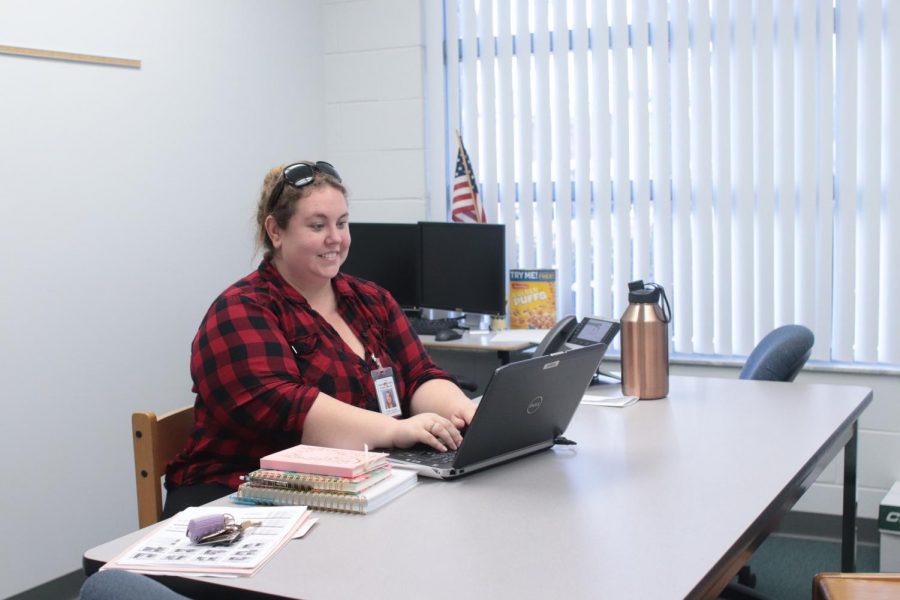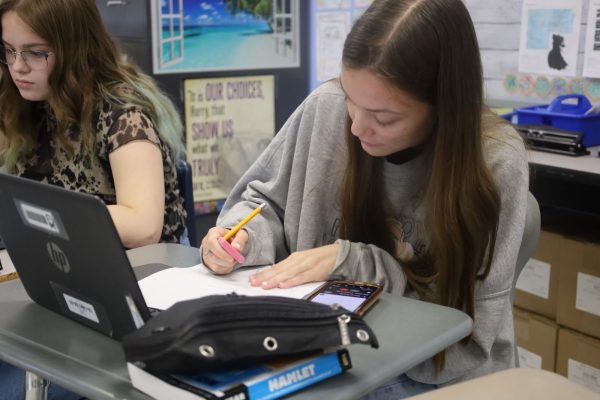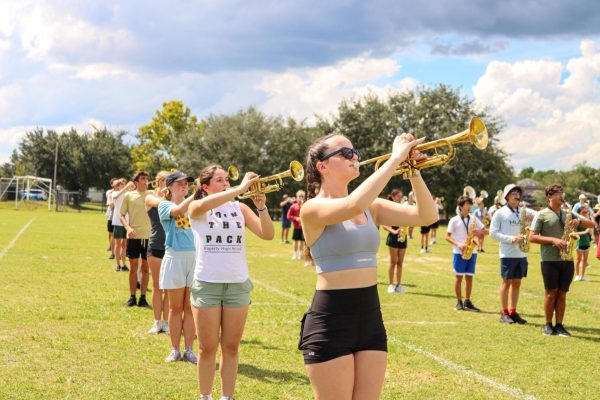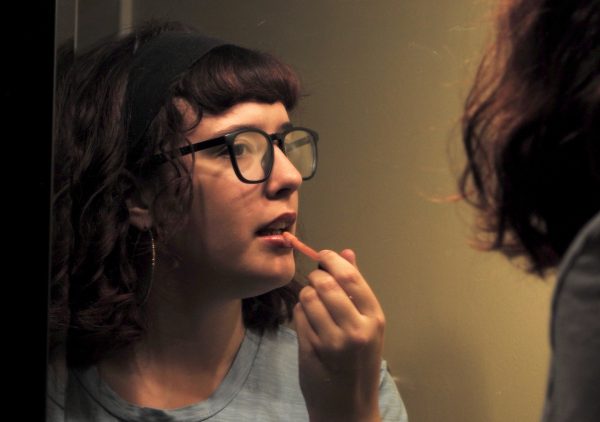In need of counsel
photo by Eileen An
District appointed mental health counselor works out a problem in her office. Palmer is here Mondays and Thursdays.
In a world riddled with rising teenage suicide rates, weekly news of school shootings, and the looming fear of bad grades college rejection, anxiety and stress are always present in the high school environment. Mental health goes unnoticed for the most part, as students are focused on completing classwork and trying to stay afloat amongst drama at school and at home.
With the addition of district-appointed mental health counselor Cassie Palmer, students now have access to another way to help. Available on Mondays and Thursdays, Palmer is located in the front office, next to bookkeeper Missy Clark’s room.
Palmer does not currently have an open-door policy, due to the requirement of parental consent, however, she does have a true passion for helping students, and is permitted to hold limited, short conversations with anyone who comes to visit.
While the position Palmer holds is fairly new, having been created last school year, Palmer has been intrigued by the subject of mental health
“I started with an interest in psychology. That kind of developed from there. I think that the way that brains work, and human behavior is really fascinating to me,” Palmer said.
Palmer has been working with Seminole County Public Schools since 2006, working with all school levels, including middle school, high school and elementary. However, she finds high schoolers to be the most interesting and the most challenging to work with as they have the most “real world problems.”
According to the National Alliance on Mental Health in 2019, 17.2 percent of high school students are faced with serious thoughts of suicide, with that number increasing to 47.7 percent for high schoolers who are lesbian, gay or bisexual. Compounded with the fact that one in five kids show signs or symptoms of suffering from a mental health disorder, as reported by Meg Anderson and Kavitha Cardoza at NPR in 2016, mental health is a serious issue especially for older students.
Palmer seeks to alleviate these problems in high schoolers; she feels that there is more to life and that high school students have much to strive for.
“I see a lot of potential with high schoolers. They are right on the cusp of something greater. I see that sometimes, you guys just need someone to talk to,” Palmer said.
Students who go to see Palmer are there to talk about anxiety or stress from pressure either put on by themselves, parents or friends. She feels that sometimes students need to vent or have a “third party to bounce things off of.”
Despite the problems teenagers are saddled with, many do not visit a counselor, which Palmer hopes to change. One of her challenges she hopes to fix is the damaging stereotype of receiving therapy for mental health. Often, seeing a counselor or getting therapy is taboo. It brings about the image of a patient laying on a couch while the doctor takes notes on a clipboard. However, Palmer sees therapists and counselors as so much more than a note-taker.
“Counseling is not like that, we are intended to be on your side, we are intended to be your allies. I want people to know that it is not scary,” Palmer said.
Palmer strives to help others improve in a positive way with tips and skills. She urges people who are on the fence about therapy to go and that it is not reserved for people with definitive mental disorders.
Principal Robert Frasca Jr. further explained the importance of having a counselor, especially on campus.
“Our school counselors know of many different resources to direct students towards, but they have their specific training, which is more in the curriculum piece and that part of the counseling,” Frasca said. “So, having somebody on campus for kids to access, when in crisis, if they just need somebody to talk to. I think that is going to really help our students. And that is our goal.”
Frasca notes that his experience with Palmer has been nothing but positive, citing her help in events with the PTSA and with administration in organizing events and teaching students about mental health. He also mentions that she is mainly here to help students, as there are resources and programs outside of the district-appointed counselor for them to access.
The environment Palmer works in can sometimes be emotionally heavy or downcast, which is why she utilizes different strategies, calling them her “toolbox” to help with the weight being a counselor might bring. She especially points out that one must have a passion, or a love for the job to cope with the content. With students being her main priority, the main motivation for Palmer is being able to see the difference in the people she sees.
“I think that it has always been really great to see your efforts work out, and see people improve based on the conversations that you have with them. I will even see the evidence of their lives improving. Being able to have that sort of influence is extremely rewarding,” Palmer said.
Your donation will support the student journalists of Hagerty High School. We are an ad-free publication, and your contribution helps us publish six issues of the BluePrint and cover our annual website hosting costs. Thank you so much!







